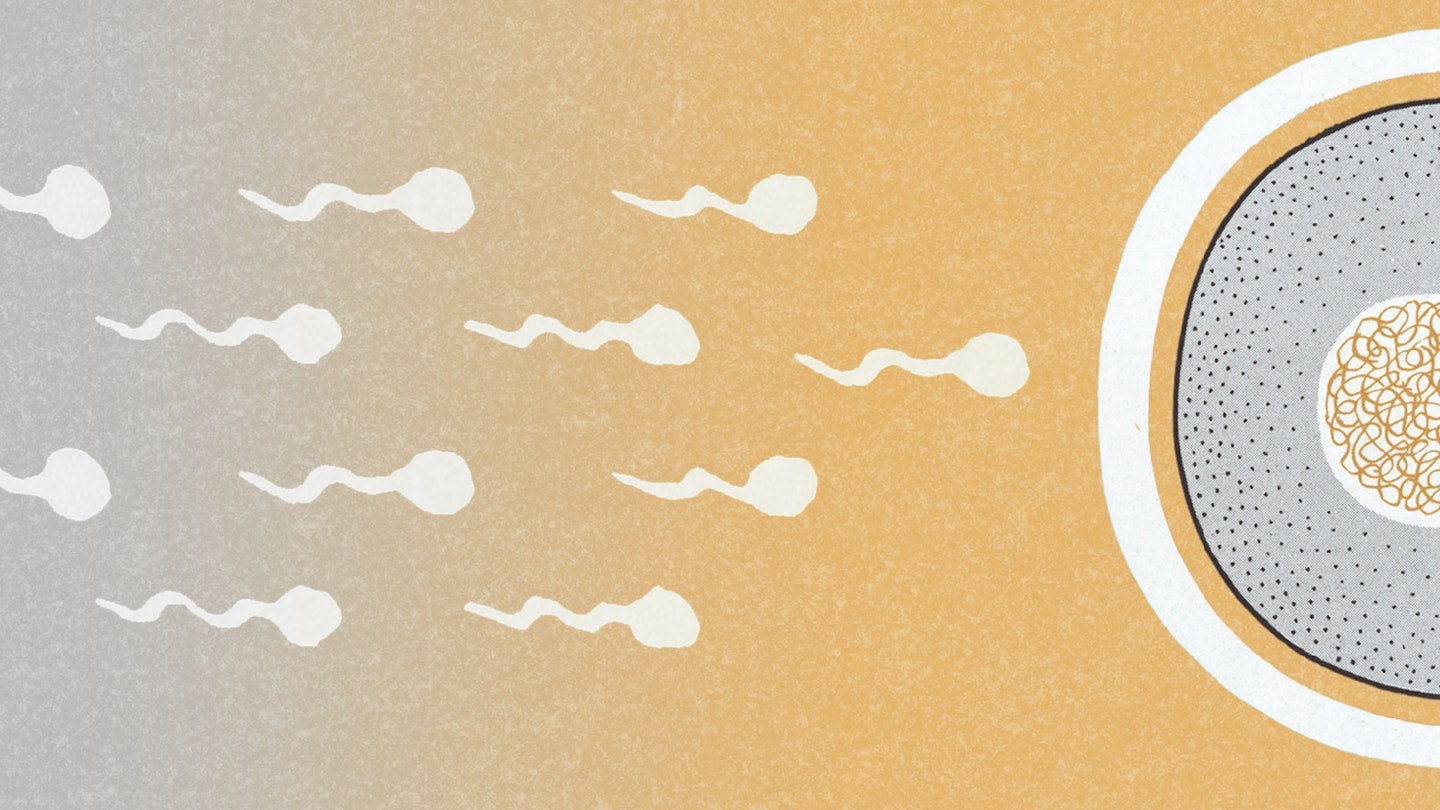At my wedding to my first husband, a rumour began to circulate among the guests that I was pregnant. When a friend told me about it, I laughed out loud because the only other option was to cry. I was 23, marrying a man who, according to his doctors, had less than a month to live. Even if we’d wanted to conceive, it wasn’t physically possible for him to ‘perform’ by that time.
So, a new study claiming that sperm donations from dead men should be allowed caught my attention. According to the report, published last week in the Journal Of Medical Ethics, opt-in ‘post-death donations’ should be a ‘morally permissible’ way of increasing low stock supplies.
The theory: men could donate sperm in the same way people donate organs and anyone, not just their partner, could benefit from it.
My first thought when I read the news was positive: I have seen the devastating impact of infertility on so many people I love. But then I thought back to my younger self and the grief-driven decisions (many of them regrettable) I made after becoming a widow. Would this have given me more options or only left me more vulnerable?
After my first husband – then my fiancé – was diagnosed with malignant melanoma at the age of 34, we did choose to freeze his sperm but, naively, we assumed he would get better and that we’d take the next step together. We were living in Dublin and, under their health care system at the time, the fertility clinic we visited would store his sperm for free for up to five years before charging us an annual fee. Of course, we thought, we’d be ready to make a baby by then.
At my lowest points, I did wonder if having a tiny carbon-copy of my first love might ease my aching loneliness
Fourteen months later, after I watched my husband fall into a coma and take his last breath, I remember late-night googling, ‘Can I keep my dead husband’s sperm?’ The answer was no. In the UK, the posthumous use of sperm is only allowed if the man has already given his written consent before his death.
In Australia – where I now live – one widow, Jennifer Gafney, was granted the right to use her dead husband’s sperm last year to conceive a sibling to the couple’s first child (he died suddenly on a work trip and his sperm was extracted 48 hours later). But I don’t envy her.
Everyone’s situation is different, but I knew I had to look forward and, eventually, build a life with somebody else. Yet, at my lowest points, I did wonder if having a tiny carbon-copy of my first love might ease my aching loneliness. As I stumbled through my twenties, there were moments I would have done anything to feel whole – and having his baby might appear a tempting Band-Aid.
And this is my concern. How many young widows, like me, might be fooled into thinking that procreation with a deceased partner is a quick-fix for heartbreak? When you’re widowed, there is a grace period where – rightly or wrongly – you can act as selfishly, recklessly and illogically as you please. Because, grief ! I would never have wanted a child, conceived in grief, to become part of my train wreck.
Selfishly, I also don’t support the idea of other women using my dead husband’s sperm for their fertility treatment. I still think I see his face in a crowd sometimes, and wouldn’t want to have to start scanning faces in the playground, too; forever wondering, ‘Is that child his?’.
Two years ago, when I married my now-husband, I was so grateful to find love again. For me, starting a family with him has been healing. Now that we have two children and another on the way, I can look at their smiling faces and only see the future – not a ghost from the past.
READ MORE: Things You Only Know If You've Chosen To Have A Baby Alone
READ MORE::a['At 13 My Parents Told Me I Was A Sperm Donor Baby']{href='https://graziadaily.co.uk/life/real-life/sperm-donor-baby/' target='_blank' rel='noopener noreferrer'}
